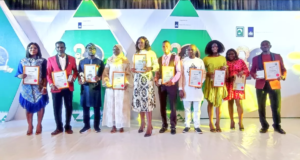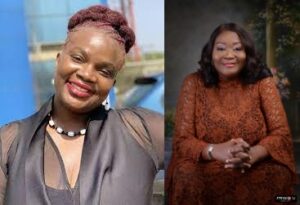 A lecture is usually organised annually to commemorate Professor Wole Soyinka’s birthday. The 2017 Wole Soyinka Media Lecture series which took place recently in Abuja, marked the 83rd birthday of the literary icon.
A lecture is usually organised annually to commemorate Professor Wole Soyinka’s birthday. The 2017 Wole Soyinka Media Lecture series which took place recently in Abuja, marked the 83rd birthday of the literary icon.
This years lecture with the theme: “Light Up, Light In: Interrogating the nexus between electricity and basic education,” was an opportunity for students of various schools within the capital city and other participants to receive some orientation on their rights as it relates to electric power supply.
The panelists which comprises former Minister of Education, Oby Ezekwesili, Executive Secretary Universal Basic Education, Hamid Bobboyi and United Nations, Humanitarian Coordinator/ UNDP Resident Representative, Edward Kallon, along with other speakers agreed that the Nigerian child is at a disadvantage, when compared to their counterparts around the world, due to poor basic education standards compounded by lack of electric power supply, which obtains in the country.
Government was therefore urged to eliminate impediments to the fundamental right of the Nigerian child to quality education.
Hamid Boboyi, who was a lead speaker for the lecture noted that part of the problems bedeviling the success of basic education in Nigeria is the absence of accurate and current research-based data to enable the government capture relevant statistics like that of out-of-school children, teacher-students ratio and students-classroom information, across the country.

Boboyi also lamented the low compliance of states in paying their counterpart funds to access the matching grants from UBEC. He worried that states will continue to thwart the basic education drive if they fail to draw medium term action plan to guide their implementation of the programme. “What they used to do in the past is to come up with a long term plan spanning ten years or more, but now, we are insisting that they draw a five year medium term plan that shows what they can immediately achieve with the intervention funds they receive from UBEC”, he said.
Edward Kallon from the United Nations offered a regional comparison of electricity and basic education in Sub-Saharan Africa, revealing that about 65 percent of schools in Nigeria lack access to electricity and this makes learning extremely difficult.
Oby Ezekwesili in her address emphasised the need for an integrated development approach that considers issues like basic education and electricity as parts of the whole rather than individual subjects.
She advised that the Operation Reach All Secondary Schools policy she initiated while at the Federal Ministry of Education be resuscitated to enable government collect direct data on schools. She also asked that the public schools in the country be mapped to ascertain the ones close to power grids so that communities and pressure groups can begin to demand for compulsory electrification of these schools to improve learning.
Ezekwesili encouraged Motunrayo Alaka, Wole Soyinka Centre for Investigative Journalism (WSCIJ) Coordinator, who launched the REMOP at the event, to use the initiative to give a voice to the Nigerian child.
She also called on all stakeholders to bear in mind the fact that Nigerian children are not competing among themselves but with their colleagues around the world who have access to power and the latest technology that enhances learning.
Ropo Sekoni, Board Chair of the WSCIJ, laid the foundation for the meeting when he presented a welcome address full of grim data on the unacceptable illiteracy level of most Nigerian children and the complication their lack of access to electricity brings to this. He therefore called on the government and all stakeholders to commence the immediate provision of solar power for all schools.
The REMOP initiative, supported by the MacArthur Foundation, seeks to foster proactive disclosure of information, transparency and accountability among regulatory institutions in Nigeria through the active engagement of the media and other partners.





